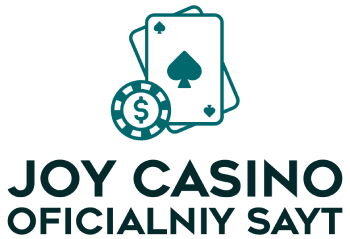During economic recessions, the casino industry encounters notable challenges that influence its operations. Changes in consumer spending habits, such as reduced discretionary income for entertainment purposes, often lead to decreased casino visits and lower overall revenue. This decline in consumer demand can impact casinos of all sizes, prompting them to implement cost-cutting measures and reassess their marketing strategies.
Additionally, during economic downturns, casinos may face difficulties in obtaining financing for expansion or renovation projects. Lenders may be more cautious due to economic uncertainty, limiting the industry’s ability to invest in growth opportunities. This can result in a slowdown in new developments within the casino sector.
To adapt to these challenges, casinos may focus on diversifying their revenue streams beyond traditional gambling activities. This could involve expanding their entertainment offerings, enhancing dining options, or investing in non-gaming amenities to attract a broader audience. By diversifying their offerings, casinos can mitigate the impact of economic fluctuations on their overall financial performance.
Overall, the casino industry’s response to economic recessions involves a mix of operational adjustments, strategic planning, and a keen focus on meeting evolving consumer preferences. By understanding and adapting to the effects of economic downturns, casinos can enhance their resilience and navigate uncertain financial climates effectively.
Decline in Gambling Revenue
During economic recessions, the casino industry typically experiences a notable decrease in gambling revenue. Economic downturns often lead individuals to reduce their discretionary spending, with entertainment activities such as gambling being among the first to be cut. This shift in consumer behavior results in reduced foot traffic and overall betting activity at casinos.
For establishments heavily reliant on gambling revenue, this decline poses significant challenges. To address this situation, casinos may need to reevaluate their marketing approaches, introduce more competitive promotions, or broaden their entertainment offerings to attract a wider audience. Adapting to the evolving economic conditions becomes essential for casinos to navigate through these difficult periods.
Consumer Spending Habits
Analyzing consumer spending habits is essential to comprehend the impact of economic recessions on the casino industry. In times of economic downturns, individuals typically have reduced disposable income, resulting in decreased overall spending, including leisure activities like gambling. As consumer confidence wanes, individuals tend to prioritize essential expenses over non-essential ones, such as entertainment at casinos.
This change in consumer priorities directly affects the casino industry, which heavily relies on discretionary spending. Consequently, casinos often witness a decline in foot traffic and revenue during recessions as consumers tighten their budgets. Adapting strategies and offerings based on these shifts in consumer behavior is crucial for casinos to navigate through challenging economic times.
Operational Challenges Faced
During economic recessions, the casino industry faces operational challenges that can have a significant impact on its performance and profitability. One key challenge is the decrease in overall revenue stemming from reduced consumer spending. As individuals cut back on non-essential expenses, casinos witness lower foot traffic and diminished spending on gaming and amenities. This decline in revenue puts pressure on operational budgets, potentially leading to layoffs, reduced operating hours, or closures of specific casino sections.
Moreover, fixed operational costs like maintenance, utilities, and staffing add to the financial strain faced by casinos. Therefore, it becomes essential for casinos to streamline operations, optimize resources, and adapt to the changing economic conditions to navigate through these challenging times.
Marketing Strategies Adaptation
During economic recessions, the casino industry should adjust its marketing strategies to align with evolving consumer behaviors and preferences. In times of financial uncertainty, consumers tend to prioritize budget considerations and exhibit more discerning spending habits. Casinos can adapt by emphasizing promotions, discounts, and loyalty programs that offer value to attract and retain customers.
Implementing targeted digital marketing campaigns can enhance outreach to a broader audience in a cost-effective manner. By highlighting the entertainment value of their offerings and creating memorable experiences, casinos can set themselves apart from other entertainment options.
Adapting marketing approaches to meet the changing needs and preferences of consumers is crucial for casinos to stay competitive and maintain customer loyalty during economic downturns.
Recovery and Growth Strategies
Navigating economic recessions in the casino industry requires the implementation of strategic recovery and growth strategies. During challenging times, it’s essential to focus on enhancing customer loyalty through personalized promotions and rewards. Offering targeted incentives can help attract new customers and retain existing ones.
Implementing cost-cutting measures is important to maintain profitability, but it’s crucial not to compromise the quality of services. Diversifying revenue streams by introducing innovative gaming options and entertainment experiences can help sustain growth.
Collaborating with other businesses to create mutually beneficial partnerships can drive traffic to the casino. Staying agile and adapting quickly to changing market conditions by regularly evaluating and adjusting strategies is key to long-term success even in economic downturns.
If you are interested in The impact of COVID-19 on Las Vegas casinos, read this article:https://joycasino-oficialniy-sayt.com/2024/10/04/the-impact-of-covid-19-on-las-vegas-casinos/
Conclusion
During economic recessions, the casino industry experiences a notable decrease in gambling revenue as consumers tend to reduce their discretionary spending. This decline in consumer spending poses operational challenges for casinos, impacting their profitability and overall financial stability. Casinos may face difficulties in maintaining their existing customer base and attracting new patrons during these challenging times.
To counteract these effects, casinos can adjust their marketing strategies to appeal to a wider audience and foster customer loyalty. Implementing targeted promotions, loyalty programs, and personalized offers can help casinos retain their customer base and encourage continued patronage. Additionally, diversifying entertainment options and enhancing overall customer experience can attract new visitors and mitigate the impact of economic downturns on revenue.
By focusing on recovery and growth strategies, casinos can navigate through economic recessions and position themselves for long-term success. Adapting to changing consumer preferences, optimizing operational efficiency, and investing in innovative technologies are key factors that can help casinos withstand economic challenges and thrive in a competitive industry landscape.

